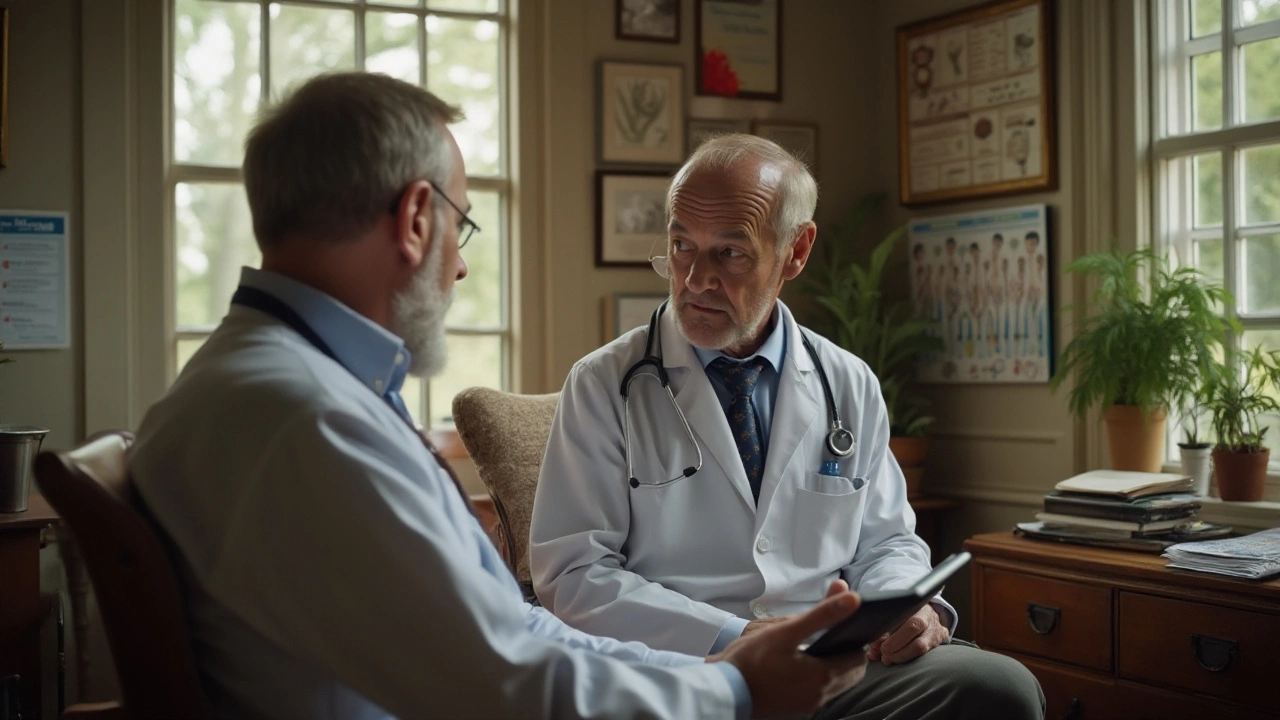If you’ve ever worried about getting it up when you need to, you’re not alone. Erectile dysfunction (ED) affects millions of men, but the good news is that most cases have a clear fix. Below we’ll break down why it happens, which meds actually help, and what everyday habits can boost performance without a prescription.
In simple terms, an erection needs three things: good blood flow, proper nerve signals, and enough hormones. Anything that blocks one of those steps can cause trouble. Common culprits include high blood pressure, diabetes, smoking, stress, and even certain meds like antidepressants. Pinpointing the root makes choosing a treatment way easier.
The most popular pills are PDE5 inhibitors – think Viagra (sildenafil), Cialis (tadalafil) and Levitra (vardenafil). They boost blood flow by relaxing vessels in the penis, but you still need sexual arousal for them to kick in. Most men feel a difference within 30‑60 minutes, and they’re safe for most people when taken as directed.
If pills aren’t your thing or don’t work, there are other medical routes: penile injections, vacuum pumps, and even low‑dose testosterone if hormone levels are low. Talk to a doctor before trying any of these; side effects can be serious without proper guidance.
Not all ED fixes need a pharmacy label. Regular exercise – especially cardio – improves blood flow and often restores function on its own. Lose excess weight, cut back on booze, quit smoking, and aim for 7‑8 hours of sleep each night.
Some supplements get buzz: L‑arginine, Panax ginseng, and zinc can help a bit, but the evidence isn’t rock solid. If you try them, keep doses low and watch for interactions with any meds you’re already using.
If ED lasts longer than a few weeks, or if it’s paired with chest pain, sudden vision loss, or severe anxiety, get medical help fast. Those symptoms could signal heart disease or another serious issue that needs treatment right away.
A doctor will run basic labs (blood sugar, cholesterol, testosterone) and ask about your meds and habits. With that info they can suggest the safest, most effective plan – whether it’s a prescription pill, therapy for stress, or a lifestyle overhaul.
Remember, ED is treatable for most men. The first step is admitting there’s a problem and then choosing a solution that fits your life. Whether you go the medical route or start tweaking daily habits, you’ll likely see improvement within weeks. Stay patient, stay honest with your doctor, and give yourself credit for taking action.

Exploring the realm of erectile dysfunction treatments, this article sheds light on five notable alternatives to Cialis. Through a detailed analysis of Sildenafil, Stendra, Levitra, Alprostadil, and generic Tadalafil, readers can learn about their distinct features, benefits, and drawbacks. This information aids individuals in making informed choices regarding which treatment might best suit their needs for effective and satisfactory results.
I recently discovered the incredible healing properties of Hedge-Hyssop, and I can't wait to share this new go-to dietary supplement with you all! Not only does this powerful herb support digestion and ease stomach issues, but it also helps to reduce inflammation and alleviate pain. As a natural remedy, Hedge-Hyssop has been proven to be safe and effective. I've personally experienced its benefits and highly recommend giving it a try. Incorporating Hedge-Hyssop into your daily routine could be the perfect addition to support your overall health and well-being.
The FDA uses Traceability Lot Codes to quickly track contaminated food batches, cutting outbreak response time from weeks to hours. Learn how the system works, which foods are covered, and what businesses must do to comply.
A side‑by‑side look at Fulvicin (griseofulvin) versus terbinafine, itraconazole, and fluconazole, covering how they work, costs, side effects, and how to pick the best option.
A practical guide for families coping with neuroblastoma, offering clear strategies to support siblings emotionally, maintain routine, and access professional resources.
In my latest blog post, I delve into the healing power of Tung Seed, a dietary supplement garnering attention in the health and wellness world. This comprehensive guide details its origin, health benefits and how to incorporate it into your daily routine. I've explored the scientific research behind its anti-inflammatory and antioxidant properties. The blog also sheds light on how Tung Seed can aid in heart health, diabetes control and boosting the immune system. If you're curious about natural health supplements, this is a must-read!